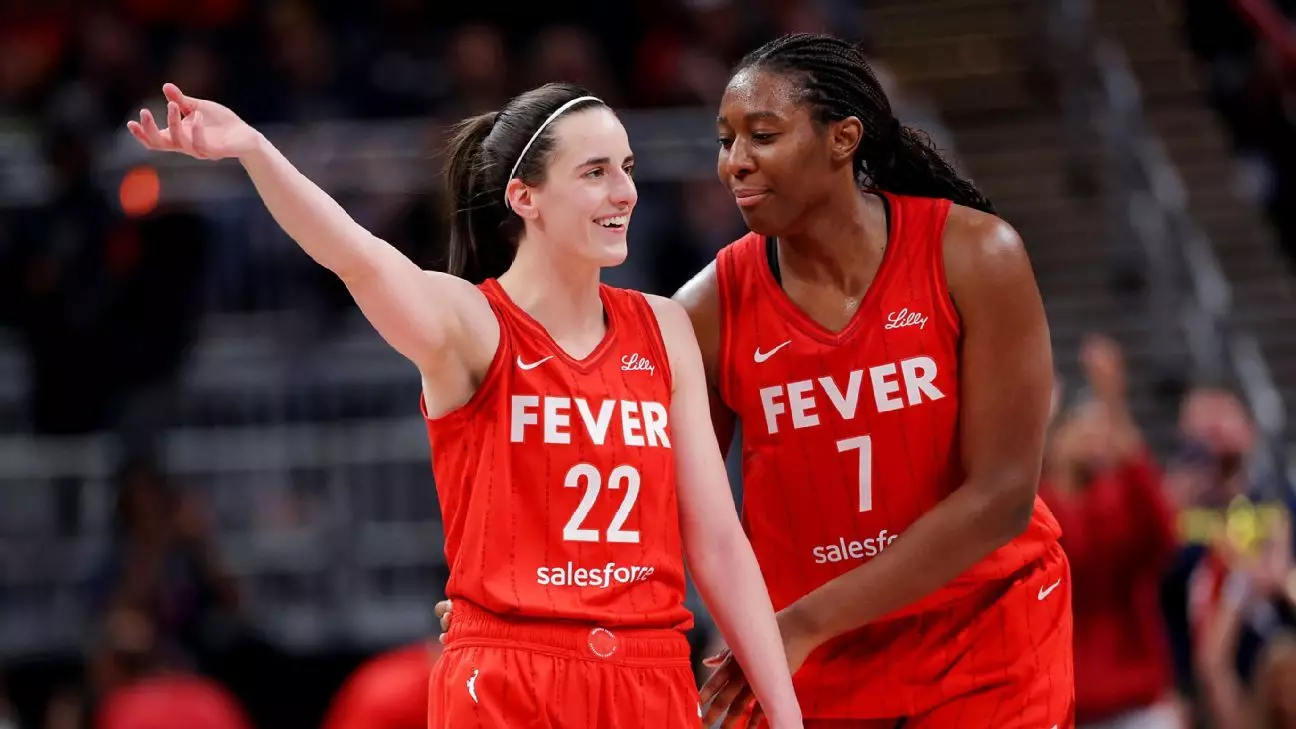The recent announcement of the WNBA All-Star rosters, tailored to celebrate the league’s brightest talents, exposes a fundamental flaw: the hype often overshadows genuine merit. While the captains, Caitlin Clark and Napheesa Collier, were tasked with drafting their teams, the process revealed the persistent power dynamics and biases that define modern sports. Fan voting, supposedly democratic, ultimately exerted a significant influence, but it’s worth questioning whether the selection truly reflects the most deserving players or simply amplifies popularity contests. As a result, what’s billed as an inclusive celebration becomes a spectacle driven by superficial allegiances, contributing more to spectacle than to meaningful recognition.
The Draft: A Battle of Interests, Not Just Talent
The player draft revealed favoritism and strategic play rather than pure talent acknowledgment. Clark’s and Collier’s choices were dictated less by objective assessment and more by alliance-building, past relationships, and team loyalty. Clark’s decision to pick her Fever teammates, Aliyah Boston and Kelsey Mitchell, signals a preference for familiarity over strategic diversity. Collier’s selection of Breanna Stewart—a teammate and former collegiate star—mirrors this tendency. This approach raises critical questions: are these selections about showcasing true star power or simply reinforcing existing bonds? It’s a flawed system that risks turning a laudable event into a premeditated alliance-building exercise, diluting its spirit of universally recognizing excellence.
The Politicization of Coaching and Its Hidden Biases
The switch of coaching assignments between Cheryl Reeve and Sandy Brondello, based on their teams’ standings and allegiances, underscores a disturbing tendency: decisions driven by status rather than merit. This move, seemingly minor, highlights how hierarchy and existing relationships influence what should be an objective showcase. When the coaching choices align with team rankings rather than tactical suitability, it convolutes the purpose of an All-Star game—celebration of individual brilliance, not political favoritism. Such decisions ultimately distort the fairness, highlighting how internal league politics taint what should be a celebration of basketball excellence.
The Fading Lines Between Competition and Self-Promotion
Both captains considered potential trades that never materialized, revealing a deeper issue: the event has morphed into a stage for strategic positioning rather than a genuine contest. Clark’s offer to swap Sabally for Stewart, and Collier’s counteroffer involving Boston, were more about strategic placement than enhancing the game’s quality. This showcases a tendency for players and coaches to use the event as a bargaining chip or leverage for future moves, thus blurring the lines between genuine competition and promotional maneuvering. The event’s potential to inspire fans and elevate the sport gets undermined by these political undercurrents.
The Spectacle Outshining Substance
By staging the All-Star Weekend at Gainbridge Fieldhouse, a venue emblematic of the Fever’s home, the league emphasizes tradition and local pride instead of focusing on the broader mission of growing the sport. The all-important contests—the 3-Point Contest and Skills Challenge—are ostensibly about showcasing talent, yet they often devolve into performative displays that prioritize entertainment over meaningful competition. The event, marketed as the league’s flagship, increasingly feels like a manufactured festival, prioritizing spectacle over the athletes’ authentic achievements or development of the sport’s competitive integrity.
The Question of Legitimacy and Progress
Underlying all these issues is a pressing question: does the current structure genuinely advance women’s basketball or merely perpetuate superficial admiration? The league must confront its own flaws—the overreliance on fan voting, favoritism in team selection, and politicized coaching decisions—that threaten to diminish its credibility. True progress will come only when the league shifts focus from spectacle to substance, from popularity metrics to meritocracy, and from political alliances to genuine recognition of talent. Until then, the All-Star game remains an elaborate show, more about fan engagement and superficial pride than about honoring the true stars of women’s basketball.

Leave a Reply